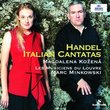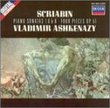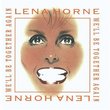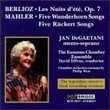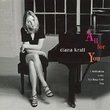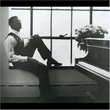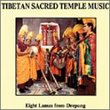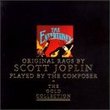| All Artists: Felix Mendelssohn, Emerson String Quartet Title: Mendelssohn: The Complete String Quartets / Emerson String Quartet Members Wishing: 0 Total Copies: 0 Label: Deutsche Grammophon Release Date: 1/11/2005 Album Type: Enhanced Genre: Classical Styles: Chamber Music, Historical Periods, Classical (c.1770-1830) Number of Discs: 4 SwapaCD Credits: 4 UPC: 028947753704 |
Search - Felix Mendelssohn, Emerson String Quartet :: Mendelssohn: The Complete String Quartets / Emerson String Quartet
 | Felix Mendelssohn, Emerson String Quartet Mendelssohn: The Complete String Quartets / Emerson String Quartet Genre: Classical
Trust the Emerson Quartet to do nothing by halves. This 4-CD set presents all of Mendelssohn's quartets, including one written at 14, the five pieces Op. 81, as well as the Octet. This set should disprove the assertion tha... more » |
CD DetailsSynopsis
Amazon.com Trust the Emerson Quartet to do nothing by halves. This 4-CD set presents all of Mendelssohn's quartets, including one written at 14, the five pieces Op. 81, as well as the Octet. This set should disprove the assertion that Mendelssohn, a sensational prodigy, blossomed young and never developed further. The difference in compositional skill and emotional depth between the early and late quartets is unmistakable; the miracle is that he could write the Octet at 16. The quartets are of uneven quality: Op. 44 No. 3 is distinctly inferior to the more-familiar Nos. 1 and 2; of the two Fugues Op. 81, the later one is far better. The quartets Op. 12 and 13 (written in reverse order) pay homage to Beethoven in Mendelssohn's very own romantic voice. Op. 80 is masterful although perhaps less disciplined: written just after his beloved sister Fanny's death and shortly before his own, it is a turbulent, heart-rending outcry of anguish. Some of the most-magical moments occur in the inimitable Scherzi and Intermezzi. The performances are vintage Emerson: impeccable individually and together, beautiful in sound, clear, carefully worked out. Although generally a little cool, they can rise to considerable warmth and passion. Not surprisingly, the best pieces elicit the most involved, exciting playing. As always, the violinists switch parts, but the whole group also alternates old Italian and modern American instruments, for the players have a surprise in store: they give the Octet a new twist by "doubling" on all eight parts through a complicated process of over-dubbing (a documentary video of the recording process is included). Here, using the different instruments is intended to combine the old and the new and to give the voices more-distinct timbres. However, the differences throughout are imperceptible. The idea of playing the Octet with themselves, so to speak, is intriguing, but the result is disappointing. Hearing four rather than eight individual voices is disconcerting, and worse, the balance is completely awry, especially in the corner movements. The busy tremolo accompaniment makes the middle register thick and heavy, the tone gets rough, important lines are obscured, and the Quartet's customary admirable textural transparency is lost. And even a cellist as splendid as David Finckel cannot save the opening of the Fugue from sounding like a growl. This may be a triumph of recording technology, but it adds nothing to the music or the performance. --Edith Eisler Similarly Requested CDs
|
CD ReviewsLIKE WATER FROM A PUBLIC FOUNTAIN DAVID BRYSON | Glossop Derbyshire England | 05/11/2005 (5 out of 5 stars) "That was Wagner's dismissive description of the music of Mendelssohn. In the later 19th century there was a critical reaction against both of the great Germans who had dominated English music for a century and a half overall, Handel and Mendelssohn. As is usual with such debunking, much of it was trivial and petulant. However Handel has recovered strongly over the last 50 years and by now is probably almost as familiar as Bach is, whereas Mendelssohn has not. The popular favourites among his compositions have never ceased to be that, but opportunities to hear most of his chamber music and songs are still rare. I am myself in the happy position of having attended two years ago a festival dedicated to those sides of his output, and consequently I know the works on this distinguished set fairly well. The performers are the Emerson Quartet, and the quality of their work is well known. In every imaginable respect it is superlatively good. Technically these accounts are flawless, and in terms of comprehension of the music and insight into the spirit of the composer I prefer to learn from them rather than to pass otiose comment. There are 7 complete quartets here, plus 5 isolated movements. Being moderately familiar with the music I would advise newcomers that the approach taken throughout is `normal' in the best sense and free from idiosyncrasies - if you are looking for `model' performances of these works this would be where to look. Mendelssohn's tempo markings, unlike those of greater composers such as Beethoven Schubert and Brahms, are almost invariably clear and unambiguous. In the one case where a bit of interpretation is called for, the central two movements of the D major quartet op44/1, I am convinced and delighted by the solution adopted. The Emersons take the minuet slowly and the following `andante con moto' at a very flowing pace, almost like an andante in Handel, so that the minuet seems like the slow movement and the andante like an intermezzo in moderate tempo. I love Mendelssohn and I love these quartets. However I can't get it out of my mind that Wagner had a bit of a point. Shaw complains of Mendelssohn's `kid-glove gentility' and he is uncomfortably near the bone. Mendelssohn is truly unique, and what he does best he does better than anybody. At the age of 16 or 17 he turned out the octet, the rondo capriccioso for piano and the Midsummer Night's Dream overture, all of them truly astounding. However by age 20 he was only one precocious prodigy among a larger number who had caught up by then and went on to surpass him. There is a definite sense of development as between the quartet he wrote at age 14 (contemporary with the string symphonies, which I commend strongly to those unfamiliar with them) where the unmistakable personal idiom has not yet quite emerged and the op12/13 quartets and then the op44's and later in which it has. However it's development within a narrow range of expression, and his early death means we can never know whether he had it in him to raise his game drastically, as Wagner and Verdi so spectacularly did when older than Mendelssohn lived to be. The Emersons have also taken it into their heads to record the octet played by themselves only. People with their amount of talent must be tempted to such brilliant but completely dotty schemes at times. There is an enthusiastic contribution to the liner-note by Eugene Drucker, and the disc will run on a pc to show the process of recording. I can confirm that it actually does this, but I have no sound-card nor any wish for one, so all I can attest is the visual aspect, and only a little of that. I must also warn that I had difficulty in getting the exit-button to obey me. As a performance it is really very good, with the finale fully up to speed as I like it, and I would never have known what nonsense they were getting up to. However something goes wrong with the recording, which is very bottom-heavy in the first movement in particular. Otherwise the recording is excellent. The main liner-note is fine if a little lengthy. When I began to think it didn't really say a lot, that brought me back to the question - how much, really, is there to say?" Beautiful Performances D. A Wend | Buffalo Grove, IL USA | 09/09/2005 (5 out of 5 stars) "Mendelssohn's string quartets are very appealing, tuneful works that engage the listener completely. Chamber music was an important part of Mendelssohn's output and one does not gain a full picture of his growth as a composer by only being familiar with his orchestral works. This 4-CD set by the Emerson String Quartet brilliantly explores not only the six numbered quartets but includes the shorter Op. 81 works (published after Mendelssohn's death), the student quartet (written when the composer was 14) and the stunning Octet for strings. Naturally, the early quartets (written in 1827 and 1829 but published in reverse order in 1830) reflect the influence of other composers, most notably Beethoven. The movements of these quartets were linked by thematic ideas. The quartet in A minor uses Mendelssohn's song Frage (Question) as the musical link. The quartet in E-Flat (Op. 12) was composed during Mendelssohn's trip to the British Isles, which also inspired his Scottish Symphony and Hebrides Overture. When Mendelssohn next turned to the form he was the director of the Gewandhaus and a famous composer. The composition of the three quartets Op. 44 (number 3, 4 and 5) occurred after his marriage to Cecile Jeanrenaud in 1837 and were composed during his two month long honeymoon. These quartets reflect the composer's maturity and accessible style. The sixth quartet was published after Mendelssohn's death and was written following the sudden death of his sister Fanny in May 1847. It follows that the quartet is darker than the others and is agitated and dissonant in tone; the first movement begins with dark tones from the cello then proceeds with a beautiful melody punctuated with tremolos. The scherzo is characterized by an unusual tempo that has a frantic quality to it. The Adagio allows Mendelssohn to fully express his grief and the Finale has the syncopated rhythm of the scherzo. The five pieces collected as Op. 81 contain what probably are two movements for an unfinished quartet - a Theme and Variations in E major and Scherzo in A minor. It was reported by the composer Ignaz Moschelles that Mendelssohn was at work on a new string quartet before his death and of these two pieces the Theme and Variations is closest to the description of the work. The earliest of Mendelssohn's quartets appears last on the CDs and is a pleasant work written under the influence of Mozart and Haydn. The Octet receives a marvelous performance with the Emerson playing all of the parts with each member playing different instruments and seated in different positions during the recording sessions. The performances are impeccable with beautiful and clear sound. I purchased the set anticipating a performance of three of the quartets by the Emerson. As I have listened to the set the warmth and sensitivity of the playing makes this the Mendelssohn quartets to own. I have only become interested in chamber music in recent years and Mendelssohn was a natural choice for me because of his gift of melody. I think this music would appeal to someone getting to know chamber music. " Beautifully recorded, well-played, but... C.D. Wexler | 01/24/2009 (4 out of 5 stars) "I expected more. These performances fall far short of those by the Aurora Quartet and the very different but equally attractive ones by the Henschel Quartet. Before you dismiss the Mendelssohn quartets--especially those numbered 1 through 5--as pleasant but mediocre works, listen to the Auroras and the Henschels. Unlike the Emersons, both the Auroras and the Henschels show that Mendelssohn wrote at least five quartets that rank with those of Brahms and Schubert. In sum, there's much much more to these quartets than the Emersons reveal."
|

 Track Listings (9) - Disc #1
Track Listings (9) - Disc #1
